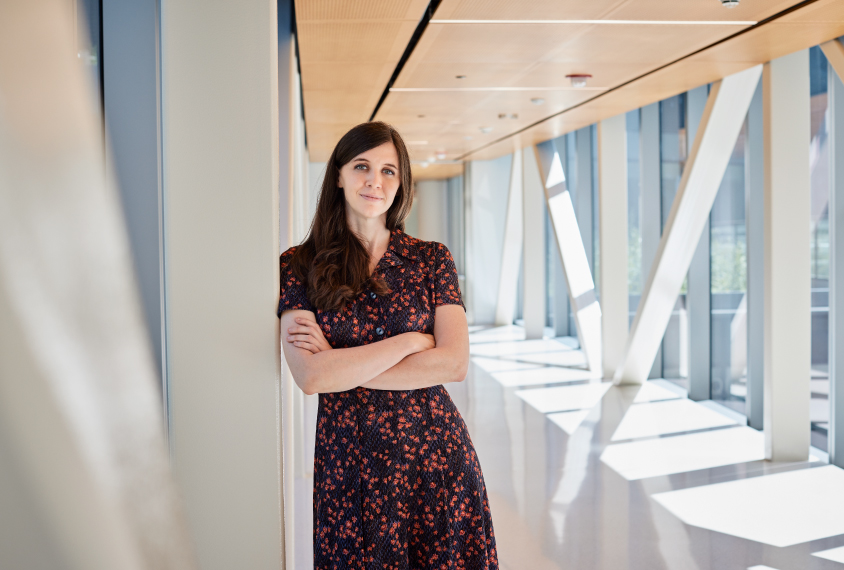Saverio Truglia
Photographer
From this contributor
Rising star: Ann Kennedy bridges gap between biology, computational theory
A theoretical neuroscientist, Kennedy uses a blend of computational modeling and real-world experiments to understand how brain activity shapes the behaviors of animals that model autism and other conditions.

Rising star: Ann Kennedy bridges gap between biology, computational theory
Elizabeth Berry-Kravis: Running a marathon for fragile X syndrome
Elizabeth Berry-Kravis has spent decades uncovering molecular clues to fragile X syndrome and crafting trials of treatments. Her efforts are paying off.

Elizabeth Berry-Kravis: Running a marathon for fragile X syndrome
Explore more from The Transmitter
Astrocytes orchestrate oxytocin’s social effects in mice
The cells amplify oxytocin—and may be responsible for sex differences in social behavior, two preprints find.

Astrocytes orchestrate oxytocin’s social effects in mice
The cells amplify oxytocin—and may be responsible for sex differences in social behavior, two preprints find.
Neuro’s ark: Spying on the secret sensory world of ticks
Carola Städele, a self-proclaimed “tick magnet,” studies the arachnids’ sensory neurobiology—in other words, how these tiny parasites zero in on their next meal.

Neuro’s ark: Spying on the secret sensory world of ticks
Carola Städele, a self-proclaimed “tick magnet,” studies the arachnids’ sensory neurobiology—in other words, how these tiny parasites zero in on their next meal.
Autism in old age, and more
Here is a roundup of autism-related news and research spotted around the web for the week of 2 March.

Autism in old age, and more
Here is a roundup of autism-related news and research spotted around the web for the week of 2 March.